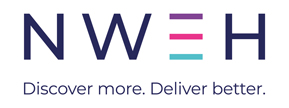Putting the UK back on the map for clinical trials: NWEH partners with CPRD

The state of clinical trials in the UK has been a central topic of discussion for some years now, but keenly so since Brexit and following the COVID-19 pandemic. Since publication of Lord James O’Shaughnessy’s Independent Review however, it seems, indeed, that small steps are being taken in the right direction to making Britain a tour de force in the life sciences sector. And NWEH is one such company assisting in these endeavours.
Speaking with Jonathan Wogel, CEO of NorthWest EHealth (NWEH), and Professor Martin Gibson, chief medical officer for NWEH and co-clinical director for the NIHR Clinical Research Network (CRN) in Greater Manchester, pharmaphorum learned more about NWEH’s just-announced pilot with the Clinical Practice Research Datalink (CPRD), and how this is a potential gamechanger for clinical trials in the UK.
A pilot with purpose
Together, NWEH and CPRD are advancing the scope of feasibility studies by combining the power of FARSITE, a unique and dynamic technology platform, with the scale of CPRD, giving sponsors rapid feasibility and helping pinpoint only the most relevant patients to take part.
“CPRD were familiar with our capabilities, so the pilot was initiated based on the strength and security of NWEH’s FARSITE platform and NWEH’s expertise in the field of clinical trial delivery,” explains Gibson.
“Recruiting participants for clinical trials can be the biggest hurdle to successfully executing a trial, with 80 % failing due to recruitment challenges,” says Wogel. “At its core, clinical trial recruitment is a numbers game, where the ability to engage and enrol enough eligible candidates is paramount for the trial to be feasible. Overcoming this hurdle requires innovative solutions.”
And so, NWEH has initiated this new pilot to test an innovative new model for safely and securely finding participants for clinical trials using the Medicine and Healthcare product Regulatory Agency’s (MHRA) Clinical Practice Research Datalink (CPRD) data services.
“I think UK PLC can be far more competitive in STEM industries in general,” says Wogel. “I think clinical trials specifically have suffered from the same malaise as other areas of technology, with a lack of attention to detail, so I feel Lord O'Shaughnessy's Review was prescient and on time. It's good to see the MHRA and now successive governments responding in a positive way, with commitments to implement the recommendations made by Lord O’Shaughnessy and ambitions to lead the world in clinical trials.”
“What is interesting, specifically, is the new government’s commitments to healthcare innovation and the desire to back the UK building on its reputation for clinical research . NWEH have been innovating in trial recruitment for over a decade, so we are truly best-placed with our tried and tested technology and expertise to help deliver on these ambitions”
Indeed, it’s one of the reasons NWEH are working with Health Innovation Manchester and Lilly on the development of the study approach for the recently announced five-year real-world evidence study (SURMOUNT-REAL UK).
Gibson echoes Wogel’s sentiments: “The O'Shaughnessy Review’s focus on the need for better primary care research, particularly in a commercial way, resonated with us at NWEH, this being at the core of our business. That is how we work with GPs, that is how we do our business, so it makes sense, given the direction the government wants to go in to help the UK get back on track, that we test our technology on CPRD’s vast data set to prove scalability.”
Recruitment: An old challenge with new possibilities
The pilot aims to demonstrate that, by integrating CPRD’s extensive anonymised patient data with FARSITE’s precise recruitment capabilities, significant acceleration of the identification and engagement of suitable participants can be achieved. This not only speeds up the recruitment process, but also helps ensure trials are more inclusive and representative, which is vital for generating reliable, real-world data.
“One of the key recommendations of the O’Shaughnessy Review was to use digital platforms and AI and to integrate them within primary care to streamline clinical trial design, reduce approval times, and support decentralised trials, which are increasingly seen as the future of clinical research,” says Wogel. “We have a tremendous health system, we have an engaged population of clinicians and of patients, we have a diverse population and, now, within the scope of this pilot, we aim to demonstrate participant recruitment can be done at a speed and scale that we’ve not seen before”.
“It’s a really exciting time, not just for NWEH, but also for the future of clinical trials in the UK. If successful, this model can be replicated and expanded – doing so will really help to put the UK back on the map for clinical trials,” explains Wogel.
It is, in short, recruiting people and getting patients into clinical trials, that will start to improve the performance of the UK. And currently, NWEH covers a population of around three million.
“We already have FARSITE, a tool that helps us find patients very quickly,” Gibson says. “It works on anonymised primary care data. We've been using it for many years very successfully, and that enables us to help companies design trials much more quickly than they normally would be able to, but also to iterate those designs based on real data to make sure that, when the protocol is finalised, it's not trying to recruit people that really don't exist.”
“With this pilot, we will now test a new model that combines NWEH’s secure FARSITE platform with CPRD’s 18-million anonymised patient records through secure, remote access, enabling us to significantly expand our reach,” states Wogel.
“Everybody, every patient, is represented in a primary care setting because your GP is your go-to person for everything,” Gibson explains. “Variability in genetics can have a profound effect on how individuals respond to treatments. Ensuring new medicines are tested on the people who will need them in the real world ensures efficacy and safety, giving drug developers the deep insights they need to label drugs appropriately, ensuring the right treatments reach the right patients at the right time.”
Wogel agrees: “Historically, diversity in trials has been overlooked; clinical trial participants have been predominantly white males. Industry understand better now that a lack of diversity – not reflecting the actual demographics of the patients we need to treat - isn’t always the optimal trial design.”
To this end, NWEH drives inclusivity and diversity by leveraging anonymised electronic health records to cast a broad recruitment funnel. But Gibson notes that their model is not suitable for every kind of trial.
“If you want to do a very specialised oncology study, [or rare disease study], where there are only about three people, that's always going to be done in specialised centres like the Christie Hospital in Manchester, or somewhere like that” he caveats.
For big burden, large population diseases relevant to the NHS, however – such as cardiovascular disease, diabetes, respiratory diseases, dermatology, common gastroenterological problems, mental health issues, chronic depression – those are all areas where NWEH’s and CPRD’s pilot aims to really make a difference for the UK.
FARSITE (Feasibility and Recruitment System to Improve Trial Efficiency)
FARSITE itself permits data sharing agreements with primary care physicians, allowing search of anonymised primary care records in near-real-time.
If you compare that with what's previously been available, it could take weeks, sometimes even months for large organisations to get hold of that kind of data. It’s useful for sponsors and pharma companies because you can literally sit down with them because you're not seeing any patient information, it's just numbers, and you can develop a protocol almost in front of their eyes,” he says. “This means faster recruitment timelines and a higher likelihood of meeting trial enrolment targets, ultimately expediting the drug development process. Meeting trial enrolment targets not only helps avoid costly delays, but also ensures that trials can generate robust data in a timely manner.
“Moreover, the inclusion of broader, more diverse cohorts in clinical trials ensures that new drugs are developed for everyone, not just a narrow demographic,” Gibson highlights.
Speeding up contract reviews: Global competitiveness
And what of the role of the MHRA in all this?
“One of the bottlenecks that was identified by the O'Shaughnessy Review was the number of studies that were stuck in the system,” says Gibson. “One of the immediate government responses to that was to invest in MHRA to unblock that. I think there are now reports coming out showing that’s the case. Certainly, with my NIHR hat on, we're starting to see far more studies coming through.”
“There are things that we can still do better around contract reviews,” he continues. “There's a national contract review, so there'll just be a single process now, where companies can negotiate the costs and contracting. Again, that's always been a roadblock to getting things up and running because it's no good the UK being six months behind other parts of the world in setting up a trial.” “It's good for everybody, especially life sciences companies […]It doesn't matter whether you live in Cornwall or Cumbria – you should still be able to get a chance to take part.”
Certainly, the nation’s borders shouldn’t limit the applicability of NWEH’s tools when it comes to considerations of scalability.
“Our software tools will work wherever there is coded information,” comments Gibson. “They'll work in the UK, they'll work in the US, they'll work in Europe, and so on, because most of the medical data around the world is coded in a similar way. We built it so that it can ingest information from any of these systems. We're not just building it for the UK. We want the UK to be in the lead, but there's an opportunity for the UK to do so much more and influence what happens beyond our shores, but let's be in the vanguard this time.”
“I think the unique proposition here is the powerful combination of cutting-edge technology to help identify patients and recruit patients faster, along with a clinical trials platform that's world-class in terms of real-time safety monitoring and reporting that can demonstrate a new standard in evidence-based medicine generation,” Wogel says. “This will demonstrate the benefits of creating strong public/private partnerships to drive healthcare innovation and shows that this country has what it takes to attract investment, to innovate, and to lead in healthcare research.”
About the interviewees

Jonathan Wogel, chief executive officer, has over 35 years' global pharma, device & biotech M&A, JV licensing, and scale up experience, with over 27 years as an expat. He has developed over £8bn in M&A deals for private and PE backed businesses and launched/licenced over 50 products globally. More recently, Wogel has focused on helping SMEs and start-ups with seed/Series A, B and Angel/PE based fundraising by developing and implementing business and commercial strategies to drive scale. He has a BSc in Biochemistry and advanced degrees in business administration, public health, and health economics. Wogel is also an NED & director of Zentraxa, a biomaterials spin out from the University of Bristol, and trustee of Active Cheshire.
 Professor Martin Gibson is the chief medical officer of NWEH, a company focused on revolutionising the use of electronic health data to support the delivery of clinical trials for the life sciences industry and academia. NWEH were the organisation behind the successful delivery of GSK’s Salford Lung Study – the world’s first real-world large-scale pragmatic randomised clinical trial. Gibson is also director of NIHR’s Research Delivery Network for NW England and is a consultant physician (specialising in diabetes and endocrinology) at Salford Royal NHS Foundation Trust. Gibson has published over 150 peer reviewed papers, generated over £100m in commercial and academic research income, and remains an active clinical trialist. From an NHS care perspective, Gibson has developed evaluated and implemented remote management systems for diabetes care and prevention and provides part of the specialised service for lipid management locally.
Professor Martin Gibson is the chief medical officer of NWEH, a company focused on revolutionising the use of electronic health data to support the delivery of clinical trials for the life sciences industry and academia. NWEH were the organisation behind the successful delivery of GSK’s Salford Lung Study – the world’s first real-world large-scale pragmatic randomised clinical trial. Gibson is also director of NIHR’s Research Delivery Network for NW England and is a consultant physician (specialising in diabetes and endocrinology) at Salford Royal NHS Foundation Trust. Gibson has published over 150 peer reviewed papers, generated over £100m in commercial and academic research income, and remains an active clinical trialist. From an NHS care perspective, Gibson has developed evaluated and implemented remote management systems for diabetes care and prevention and provides part of the specialised service for lipid management locally.
About NorthWest EHealth (NWEH) and the FARSITE platform

NWEH is a leader in clinical trials solutions. Its transformative technology is tried and tested with in-house expertise to streamline clinical trial delivery, for trials that are smarter, faster and truer-to-life. NWEH’s technology is powered for precision. From complex trial criteria to data insights, NWEH’s robust experience and services deliver clinical trials that are accurate, consistent, and reliable.
With NWEH, what traditionally takes weeks can be done in minutes, helping deliver rapid feasibility studies, find-and-refer services, trial set up, safety monitoring and data analysis that is cost-effective, time-efficient and outcome-driven. By cutting through the complexity of clinical trial coordination, NWEH drives efficiencies to save time and money, and ensure robust real-world data generation.
NWEH’s unique FARSITE platform was developed by a team of clinicians working within the NHS and academia with the aim of cutting through the complexity of clinical trial set up and coordination while enabling real-world, true-to-life patient insights. FARSITE is a secure platform which enables rapid feasibility across a representative population, while preserving participant anonymity. It finds trial participants with pin-point accuracy thanks to easy-to-use inclusion and exclusion criteria. This unlocks potential participant pools for find-and-refer services who are then directly contacted by their GP practices, increasing opportunities for people to participate in clinical trials. Since its launch in 2009 the unique FARSITE platform has recruited over 20,000 participants to clinical trials in the UK, improving the speed and efficiency of clinical research.
From feasibility assessments, to find-and-refer services, trial set up, safety monitoring and data analysis, NWEH offers end-to-end solutions to boost healthcare discovery and delivery.
By maximising trial diversity and inclusivity, NWEH unlocks outcomes that will be applicable to a broader patient demographic and truly meaningful in the real world.
NWEH is proud to be supporting the UK in its ambitions to re-establish the nation as a clinical research hub and global science superpower. For more information, please visit: www.nweh.co.uk











